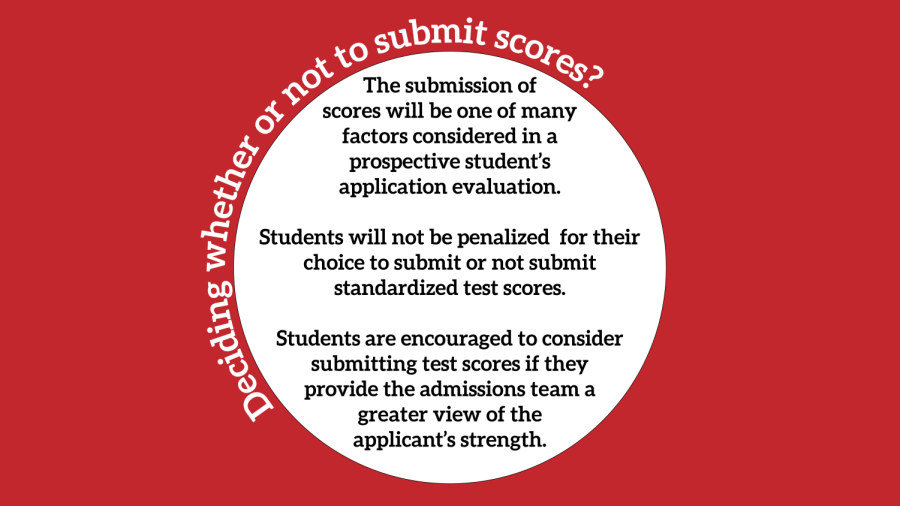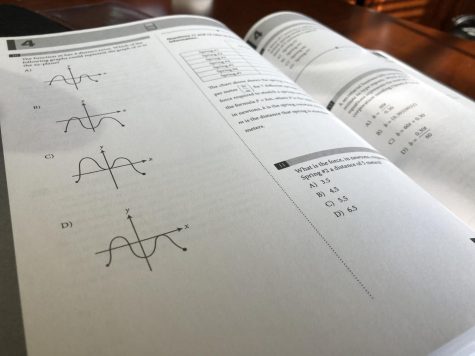Undergraduate Admissions Extends Test-Optional Policy
The decision, which was received well by students, has been expanded to include fall 2024 applicants
September 29, 2022
Fordham’s Office of Undergraduate Admissions announced on Sept. 12 that it will extend the test-optional policy to include prospective students applying for the fall 2024 admission cycle. The university originally implemented the change alongside many other colleges in May 2020 due to the COVID-19 pandemic.
The measure was initially introduced at the beginning of the pandemic to allow applicants to be able to apply to colleges without risking infection by entering potentially dangerous testing centers. Patricia Peek, dean of undergraduate admissions and associate vice president at Fordham, explained that the decision went further than addressing the effects of the pandemic, as it also aimed to make the admissions process more holistic.
“By making standardized tests optional, we have improved access for students who might not otherwise apply to the University, and have done so while maintaining our commitment to academic rigor,” Peek said. “For some students, testing is an accurate measure of their achievement and for others it may not be so. Our policy allows students to demonstrate their strengths in context.”
The policy extension stemmed from the belief that in addition to highlighting other skills and interests of applicants, forgoing mandatory admissions tests will increase diversity among the student body at Fordham, according to Peek.
Among Fordham students, the extension of the test-optional policy has gathered support.
Mia Simmons, Fordham College at Lincoln Center (FCLC) ’26, said that the test-optional policy at Fordham made her application experience more pleasant. Simmons noted that by not requiring this component, more aspects of a student’s application are considered during the admissions process.
“I did not apply to Fordham with my SAT/ACT scores,” she said. “I believe the test optional policy should still be in place for the upcoming years because standardized test scores limit the abilities of most students. Fordham accepts people on a holistic standard, however, test scores are usually a big chunk of the application process.”
Simmons also added that the test optional policy gives students the chance to come to a university without having to be defined by their standardized test scores. They are qualified through other factors such as their grades and rigor displayed through their high school courses.
She also added that Fordham’s decision to implement this policy will help students of color during the college admissions process.
“Because there are some students that are people of color who have amazing grades, essays, volunteer and extracurricular activities however, they are overlooked often at prestigious universities due to their lower SAT or ACT scores because they do not have the resources to have SAT tutors and ACT tutors, as well as workshops in their areas,” she said.
Many students expressed their support for the change, as it will allow for applications to more accurately reflect the student that is applying.
“Admissions counselors should focus more on students’ in-school success, such as what clubs they are in, how they have gotten involved in their local community and how a student is doing emotionally” Dylan Parks, FCLC ’26
Dylan Parks, FCLC ’26, said that admissions should consider other aspects of a student’s application and said that he hopes to see the test-optional policy continue to be extended in the future.
“Admissions counselors should focus more on students’ in-school success, such as what clubs they are in, how they have gotten involved in their local community and how a student is doing emotionally,” he said.
Bella Reyes, FCLC ’25, never took any college admission standardized tests in high school and said she feels that the exams fail to accurately represent students’ skill sets.
“I still believe that I have the ability to academically compete at the same level with students who did take it, which makes me think it’s an archaic testing format, at this point,” she said. “I’m glad that Fordham’s extending the test-optional policy.”
“We strongly believe that we can fairly evaluate applicants who submit test scores—along with those who do not—and offer admission to candidates who can thrive at Fordham.” Patricia Peek, dean of undergraduate admissions and associate vice president at Fordham
Peek mentioned that the policy extension has been well-received by students and noted that the admissions trend was representative of that.
“The fact that we have enrolled the two largest and most diverse classes in the last 2 years is an encouraging sign,” she said.
In regard to whether the policy will be permanently implemented for future admissions cycles, Peek stated that more thought and data analysis has to occur before an affirmative decision is made. She said that she believes that Fordham’s test-optional policy will increase access to students who are seeking the benefits of a Fordham education.
“We know that in a holistic review, students present a complex array of qualifications and characteristics that make them unique,” Peek said. “We strongly believe that we can fairly evaluate applicants who submit test scores—along with those who do not—and offer admission to candidates who can thrive at Fordham.”




















